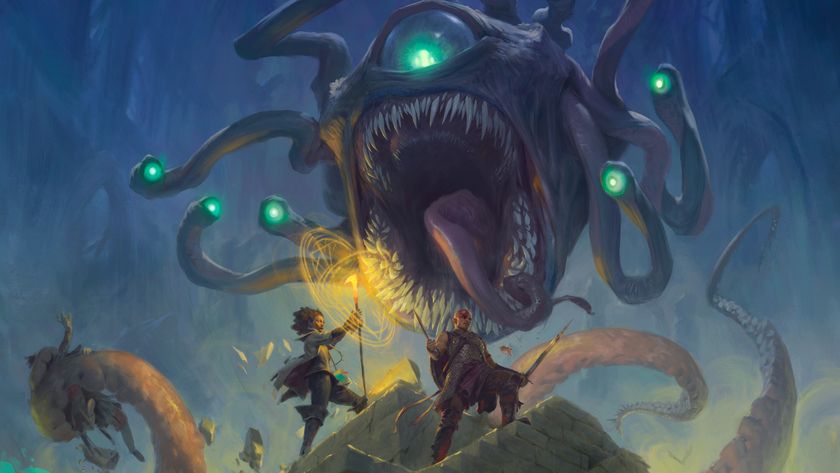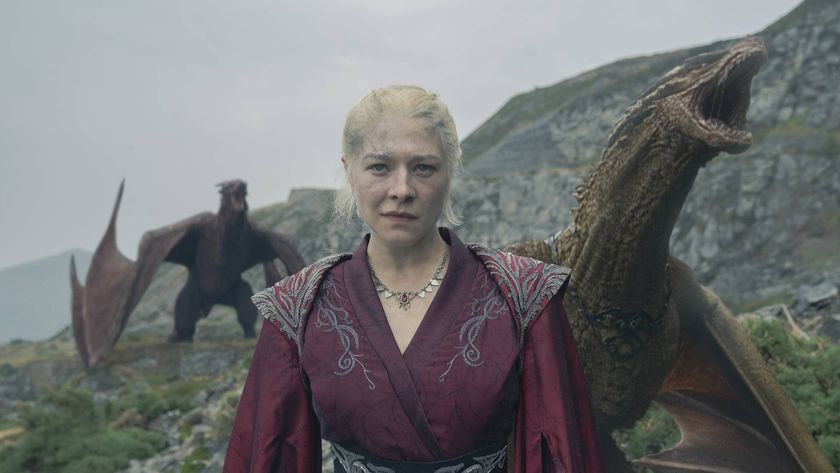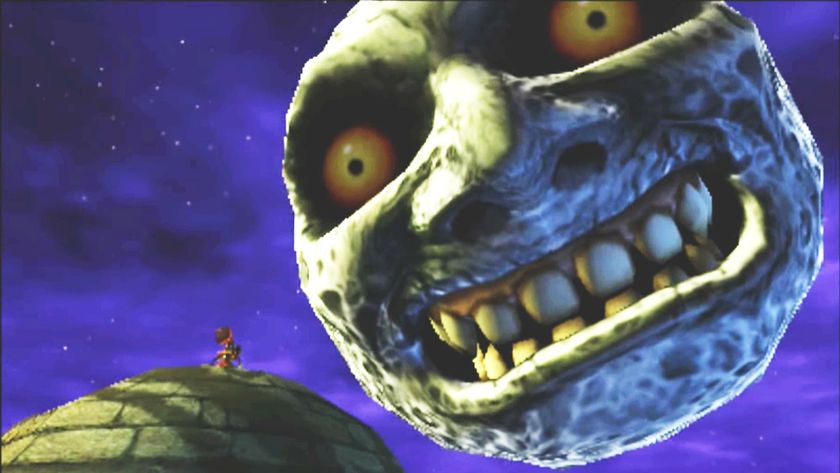The Game of Thrones pilot you never saw, and the TV epic that nearly didn't happen
With season 8 very nearly here, we look back on the doomed Game of Thrones pilot you'll never see, and the story of how TV's biggest show came into being
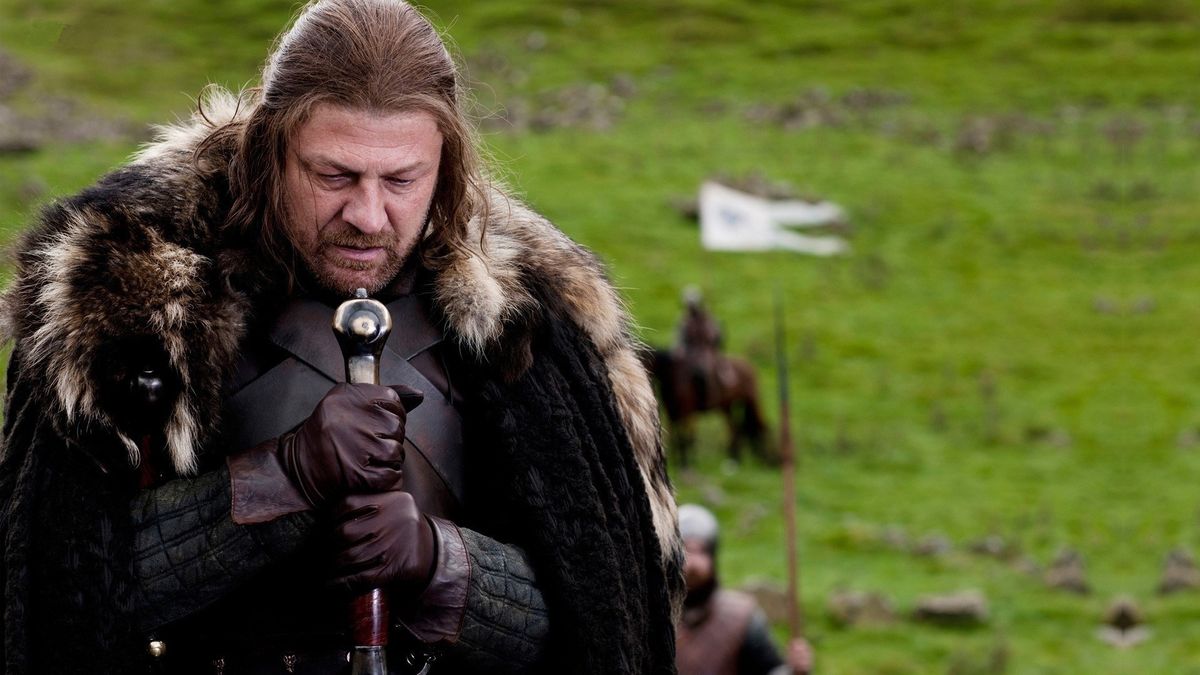
Game of Thrones is a phenomenon. The show has taken one of the richest, most dense fantasy universes ever published, successfully condensed it into a form of TV with near universal appeal, and somehow gone beyond the source material seamlessly, fleshing out storylines in a way that feels like both a natural continuation and a bold new direction all at once.
It’s grown into one of the largest TV franchises in the world, now spanning 67 episodes, with another six concluding episodes planned for Game of Thrones season 8. When airing, it owns the watercooler, reserves the TV without question every week, and sparks fires all over social media as fans excitedly spoil and hide from spoilers in near equal measure.
Eight years after the series debuted on HBO, Game of Thrones continues to grow in popularity. The Game of Thrones season 7 finale, The Dragon and the Wolf, set records with 16.5 million viewers watching as it aired and streaming the same night, making it the most-watched episode in series history. The top three rated TV episodes of all time are also Game of Thrones episodes, with Game of Thrones season 6's The Winds of Winter and Battle of the Bastards, and Game of Thrones season 5's Hardhome claiming the top spots on IMDb's highest-rated television episode list.
Given how much of a cultural icon Game of Thrones has become, you might be surprised to learn just how hard it was to get it off the ground in the first place. After all, there really wasn’t anything like it at the time. The show idea was first tossed around back in 2005. This was a couple of years after the Lord of the Rings trilogy, which proved that fantasy epics weren’t only for niche interests or geeks.
Comedies like The Office, How I Met Your Mother, and It’s Always Sunny in Philadelphia took up plenty of airtime, but the green shoots of what we recognise as binge TV in 2017 were starting to poke through. Rome was championing the historical epic, packed with sex and violence; the first season of 24 popularised the ‘just one more episode’ pull we experience regularly now; and Lost was on its second season, threading intrigue and consistent narrative threads through weekly episodes. The time was ripe for something huge like Game of Thrones. Except it was long after 2005 before we had our first taste.
"I said, ‘If we could somehow get George to agree to do this, we get HBO to agree to do this, and we got to a third season, we could get to The Red Wedding'.”
David Benioff
The first person to bring up a Game of Thrones show was actually George RR Martin himself. Martin, fresh off writing A Feast of Crows, wanted to make a show based on the A Song of Ice and Fire series where each book was a season, but he told his agent he didn’t have time to do it. Martin’s agent later sent the first four books to David Benioff, the screenwriter behind the fantasy Greek epic, Troy. Benioff binge-read them and immediately called collaborator D.B. Weiss. Benioff was already way past trying to make a pilot, or a first season. He wanted to make it a bonafide hit - if only to get to the Red Wedding.
“I remember I was halfway through Storm of Swords and I called [Weiss] and I said, ‘If we could somehow get George to agree to do this, we get HBO to agree to do this, and we got to a third season, we could get to this scene,” Benioff said, during an Emmy TV interview. “But we had to get George to agree to it.”
Sign up to the SFX Newsletter
Get sneak previews, exclusive competitions and details of special events each month!
The big question
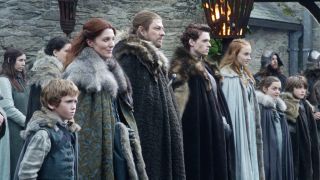
Benioff and Weiss met Martin at a restaurant in Los Angeles for lunch to discuss the show idea, and talks went way past dinnertime. Martin said the pair impressed him by successfully answering a series of ‘know-it-all’ questions about the books, most notably, the now-confirmed ‘Who is Jon Snow’s mother?’
“We knew we’d passed the Wonka test at that point,” Weiss said.
It took a couple of years to make the series happen, pitching to HBO and Showtime before HBO agreed to pick it up in January 2007. Having failed to gather the massive audience numbers shows like Rome and Deadwood probably deserved, there was definitely room on HBO’s slate for a lavish, violent drama. The Wire was coming to an end, The Sopranos was winding down, and many of the comedy shows HBO was pushing were failing to reach the heights of Sex and the City.

The best Game of Thrones theories you need to know about going into season 8
Interestingly, the idea of turning Game of Thrones into a movie was discussed then quickly discarded by Benioff and Weiss. “A fantasy movie of this scope, financed by a major studio, would almost certainly need a PG-13 rating. That means no sex, no blood, no profanity. Fuck that," he said during an interview with Bryan Cogman for his book Inside HBO’s Game of Thrones.
Sadly, though, quality TV took a major hiatus around that time. The Writers Guild of America strike started later that year, which completely halted progress on the new series. It took a year and a half for things to actually move forward, after months of delays from the strike and a promised partnership with the BBC that never panned out. Good job too.
While accepting the Shakespeare Award for Classical Theatre at the Harman Center for Arts, Charles Dance (who plays Tywin Lannister) gave some background. “They screened the first couple of episodes of season 1 for a whole bunch of us. So there’s all this rumpy pumpy going on, it was all doggy fashion, and I said to David [Benioff] and Dan [Weiss], the two writers – and they’re also executive producers – ‘Well, obviously the missionary position didn’t come into vogue in the Seven Kingdoms for some time to come.’ They said, ‘We wanted it to be animalistic, Charles.’ I said, ‘Well, it’s certainly that! Wham, bam, thank you ma'am.’ If that had been the BBC, they’d have pulled the plug on it immediately and I was told that there was a time when the BBC were going to be part of the co-production and thank God they weren’t, because HBO knows how to spend money, and it was HBO and Sky Atlantic”.
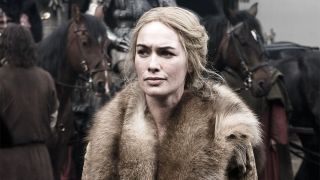
HBO finally bought the show rights in September 2008, but the pilot wasn’t made until 2009, and according to The Hollywood Reporter it cost between $5-10million to bring Winterfell to life (so, you can assume some of that budget permeated the rest of Game of Thrones season 1) - roughly the same cost as a single episode in season 6. That total is also likely to include reshoots and rewrites, however, as you’re about to discover.
“I thought it was a terrible idea. Terrible… just silly. It’s like Dungeons and Dragons."
Amanda Peet
Benioff and Weiss were very focused on engaging the fans of Martin’s original work, appearing on forums and a Second Life coffee shop to ask book fans what they’d like to see come out of the HBO series, including casting suggestions. One of the first and biggest requests was to cast Peter Dinklage as Tyrion, with one forum user telling the pair to “kidnap him if you have to!”
Interestingly, Dinklage was actually the first announced cast member, so clearly the pair listened to the fans. Others were less enthusiastic. Speaking to Conan O’Brien, Benioff’s wife - Amanda Peet - admitted she wasn’t a fan of Game of Thrones. “I thought it was a terrible idea. Terrible… just silly. It’s like Dungeons and Dragons, but real, with real people.”
Changes are coming

She could so easily have been right. After the first pilot was shot in 2009, Benioff and Weiss showed it to some of their friends and colleagues who weren’t A Song of Ice and Fire fans. In short, they hated it. To explain it a bit more, they really, really, really hated it. “Watching them watch that original pilot was one of the most painful experiences of my life,” Weiss told the Scriptnotes podcast.
As hard as fans have tried, there are no available copies of the original unaired pilot, so it’s impossible to show what exactly was so wrong with it. But according to an unconfirmed copy of the script, the original pilot was more faithful to the books, but it made the tone and dialogue pretty boring. In addition, the actresses originally hired to play Daenerys and Catelyn Stark may not have been right for the roles. Benioff even said none of the people who watched the pilot figured out Jaime and Cersei Lannister were brother and sister, so the final bone-town scene at the end of the episode didn’t pack as big a punch.
"I just remembered writing in all caps, ‘MASSIVE PROBLEM,’ and it’s all I could think about the rest of the night.”
David Benioff
“I had this yellow legal pad, and I just remembered writing in all caps, ‘MASSIVE PROBLEM,’ and it’s all I could think about the rest of the night,” Benioff said on the podcast.
The pilot was so bad that Sophie Turner, who plays Sansa Stark, said HBO almost passed on the series entirely. But instead of pulling a Joffrey Lannister during the Battle of Blackwater Bay and just giving up like whiny cowards, Weiss and Benioff bucked up and re-shot a whopping 90% of the pilot. Emilia Clarke and Michelle Fairley were brought on as the new Dany and Catelyn, the Jon Arryn death scene was removed (along with death scenes for Rickard and Brandon Stark, apparently) and we got a lot more cute Stark family bonding time. Sadly, we lost a cameo from George RR Martin himself, who played a Pentoshi nobleman, and we may never get one now. The pilot was changed so drastically that the original director, Tom McCarthy, had his credit removed entirely.

A show "no woman alive would watch" - here's what critics originally thought of Game of Thrones
In March 2010, right around when the pilot was being re-shot, HBO picked up the series for a ten episode first season, and the rest of the episodes were filmed alongside the drastically revised pilot. Even though the show was in early development, the hype was off the charts. Time’s James Poniewozik predicted it would likely be HBO’s next great drama series. Sadly, it took a little time to get off the ground, and some critics just didn’t understand the first season.
The debut episode, Winter is Coming, only got about 2 million viewers and a ‘B’ score on The AV Club. It was slow going, but as more people learned about the show, the more popular it got. By the end of season 1, the series had already grown by almost a million viewers, and continued to grow about a million viewers a year through season 5. Season 6 almost hit figures of 8 million (in the US) for the premiere episode, but tailed off a little until The Battle of the Bastards. Eventually The Winds of Winter - the finale - came close to 9m viewers, and season 7 went onto even greater heights.
The Thrones effect

The show’s success, however, can be measured in more than just viewership figures. Initially filmed in locations throughout Northern Ireland, Scotland, and Morocco, the reshoots of the pilot also expanded to Malta. Since then, Game of Thrones has visited Iceland, Croatia, and Spain. According to Trip Advisor, each of these filming locations have received a 120% increase in traveller interest since season 6 aired, and you can now go on Game of Thrones tours in all the major countries. Northern Ireland even has its own Game of Thrones Tours operator, and the GoT museum hosted in Belfast made £2.9million during 2014.
This is one side-effect of the fact Thrones has now become a phenomenon that transcends its ‘nerdy’ fantasy beginnings. It’s a cultural touchstone, very much like Star Wars or The Simpsons. 2017 marked the first year Game of Thrones is getting its own convention, a sure sign that you’ve made it, and its panels always get crowded out at Comic Con.
From humble beginnings come great things, so says the old adage. In many ways the start of Game of Thrones was far from humble, it being based on multi-million selling books, and produced by some world-class talent, funded by one of the biggest players in TV. But in other ways the pilot was - by all accounts - very humble indeed, yet it has spawned the most significant entertainment event in decades. Funny to think that were it not for a few hasty revisions, a lot of patience, and some wonderful honesty from one of the showrunners’ partners… it might never have happened at all.
Game of Thrones season 8 airs on Sunday, April 14 on HBO in the US and Monday, April 15 on Sky Atlantic in the UK.
Beth Elderkin is a freelance journalist based in Chicago, and co-hosts Once Upon a Timing - a weekly rewatch podcast for ABC's Once Upon a Time. She's currently Content Marketing Manager for GDC, but previously wrote for io9, Gizmodo, Inverse, and more.
Most Popular





